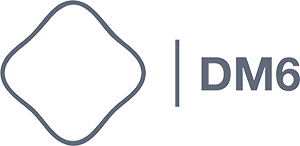Zinc (Zn)
BackWhat is zinc?
Zinc is an essential mineral that is found in a variety of foods, including seafood, red meat, poultry, beans, and nuts. It plays a number of important roles in the body, including helping to boost the immune system, facilitating wound healing, and supporting normal growth and development.
How is zinc measured in a lab test?
Zinc can be measured through a blood test, in which a sample of the patient's blood is drawn and sent to a laboratory for analysis. The blood sample is placed in a machine called an atomic absorption spectrophotometer, which measures the amount of zinc present in the sample. The results of the test are typically reported in milligrams per deciliter (mg/dL).
What is a normal range for zinc levels?
The normal range for zinc levels varies depending on the specific laboratory and the assay used to measure the mineral. Generally, normal zinc levels are between 70 and 150 mg/dL. However, it is important to note that these ranges may vary slightly depending on the specific laboratory and assay used.
What can low levels of zinc indicate?
Low levels of zinc, also known as zinc deficiency, can be caused by a variety of factors, including inadequate intake of zinc-rich foods, certain medications, and certain health conditions. Low zinc levels can lead to a variety of symptoms, including impaired immune function, impaired wound healing, and changes in taste or smell.
Can zinc levels be affected by other factors?
Zinc levels can be affected by a variety of factors, including age, gender, and certain medications. For example, zinc levels tend to be lower in older adults and in individuals with certain health conditions, such as gastrointestinal disorders or kidney disease. Certain medications, such as diuretics and proton pump inhibitors, can also affect zinc levels. It is important for healthcare providers to consider these factors when interpreting zinc test results.
How is zinc used in the diagnosis and treatment of health conditions?
Zinc is often used to help diagnose and monitor certain health conditions that may be related to zinc deficiency, such as malnutrition or gastrointestinal disorders. In some cases, zinc supplements may be used to treat these conditions and help restore normal zinc levels in the body.
Are there any limitations to using zinc as a diagnostic tool?
There are several limitations to using zinc as a diagnostic tool. For example, zinc levels can fluctuate over time and may not always accurately reflect the presence or severity of a health condition. Additionally, zinc levels can be affected by a variety of factors, such as age, gender, and certain medications, which can make it difficult to interpret test results. As a result, healthcare providers may use other tests, such as blood or urine tests, in conjunction with zinc testing to help diagnose and monitor certain health conditions.
Zinc. National Institutes of Health Office of Dietary Supplements. https://ods.od.nih.gov/factsheets/Zinc-Consumer/.
Zinc Test. Mayo Clinic. https://www.mayoclinic.org/tests-procedures/zinc-test/about/pac-20394046.
Zinc Deficiency. World Health Organization. https://www.who.int/nutrition/topics/zincdeficiency/en/.
Zinc Blood Test. Lab Tests Online. https://labtestsonline.org/tests/zinc-blood-test.


